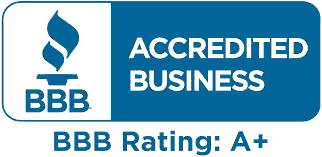What to do After you Rebuild Your Credit Score
I’ve posted several blogs (such as this one and this one) about ways to rebuild or repair less-than-perfect credit scores — and with good reason. Your credit score determines what kinds of loans and interest rates you can get, and in some cases it can affect your ability to find a place to live or even a job. And while repairing your credit score isn’t impossible, it’s not exactly easy: It can take several months to begin undoing the damage caused by common credit-card missteps like late/missed payments or overspending.
But what happens after you repair your credit score? How do you maintain your credit score and avoid backsliding into bad credit?
Here are a few ways to maintain your new and improved credit score:
- Don’t close any cards! If your credit score was sagging due to a card with a sky-high balance, it’s probably super-tempting to close the offending account once and for all once you’ve paid it off. But the truth is that closing a card can do way more harm than good. Here’s why: Your credit score is calculated based on several factors – but two things can really make or break you: One is, of course, your payment history. The other is the ratio of available credit to credit used (this is often referred to as “credit utilization”).
So, let’s say you have two cards: One with a $5,000 limit and one with a $2,000 limit. Your total available credit is $7,000. Now, let’s say you cancel the card with the $5,000 limit. Suddenly, your available credit plummets to $2,000 – and you have less wiggle room in your credit used/available credit ratio.
And while we’re on the subject of not closing cards . . .
- Keep your cards active. Even if you don’t request to close an account, your credit card company may decide to close your credit card if your account remains inactive for long periods of time. To avoid this, make a point to use your card at least once a month for something small, and then pay off the balance immediately. Want an easy way to ensure regular monthly usage? Consider paying a small bill with your card every month (inexpensive subscription services like Netflix or Hulu work well for this). Just remember to pay your balance off – in full – every month!
- Put bills on autopilot. Late payments are credit score killers – especially if you’ve just bounced back from a low credit score. Automatic payments are an easy way to make sure that you never forget a due date.
- Check your credit report. Everyone is entitled to one free credit report per year from www.annualcreditreport.com, so do yourself (and your credit) a favor and pull your report if you haven’t done so lately. Read your report carefully and be on the lookout for anything that could bring down your score such as errors or suspicious activity.
- Say goodbye to secured cards. If you’re trying to rebuild your credit, a secured card can be a powerful tool. But they definitely have their share of drawbacks: Because they’re typically given to folks who can’t get a normal card, secured cards typically have super-low credit limits and higher fees than many traditional cards. What’s more, they require you to put down a pretty hefty deposit. Once you’ve repaired your score, it may be time to look beyond secured cards. Some companies will give you the option to move from a secured card to a regular, unsecured card after you’ve demonstrated your ability to use credit cards responsibly.
- Shop for better, lower interest rates. When your credit score is low, lenders view you as a high credit risk – meaning that you typically end up with higher interest rates than people with better credit. If you’ve had not-so-great credit in the past, there’s a good chance that you’re stuck with a bunch of old interest rates that reflect your old credit score. Want better rates? Ask. Call your credit card company and request a lower interest rate. Consider refinancing mortgage or car loans to get a better interest rate. You’ll save money in the long run.
If you’ve successfully repaired your credit score, congratulations on this major milestone! It’s never easy to bounce back from bad credit – but the good news is that by staying on top of your credit report and practicing responsible credit use, you can keep your score on the up-and-up!
Here’s to better credit in 2015! Happy holidays!

 We offer FREE Debt Counseling. Get answers to lower or eliminate your debts.
We offer FREE Debt Counseling. Get answers to lower or eliminate your debts.
